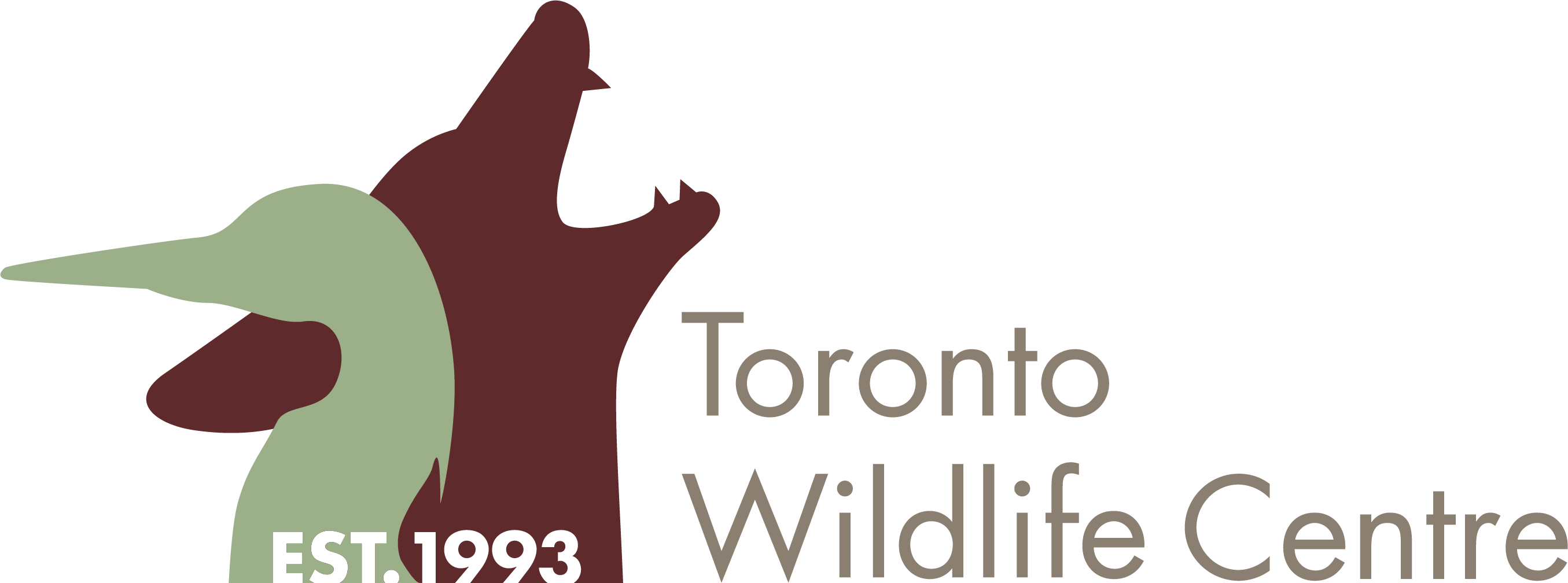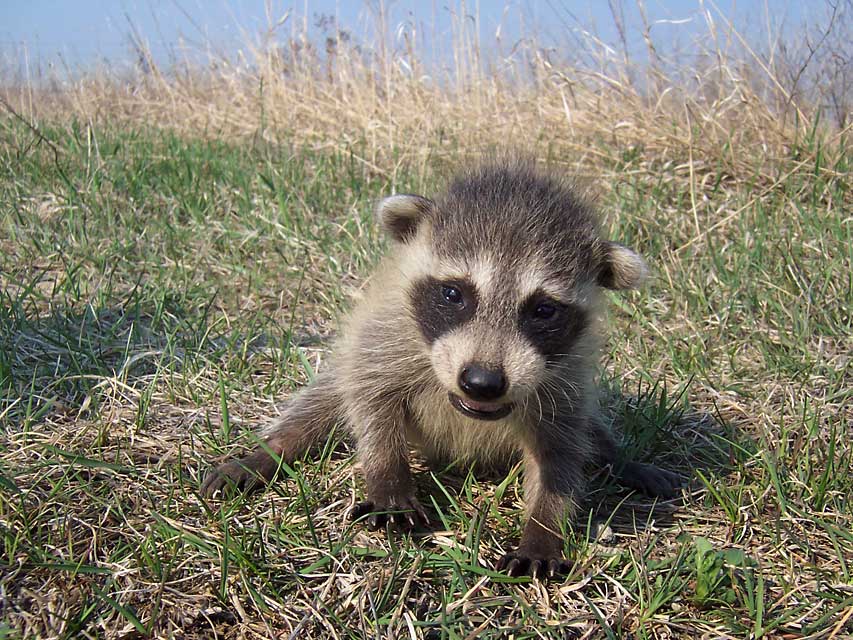It can be tempting to try to raise an orphaned wild baby, like a squirrel or raccoon, especially when you are having difficulty finding a space for it with a licensed wildlife rehabilitator. However, wild babies need very specific care, and without training or resources to provide for it, you are setting it up for failure as an adult.
Wildlife rehabilitation is the treatment and temporary care of a wild animal – the ultimate goal is the return of healthy animals to their appropriate habitat in the wild. If you are not a trained and licensed rehabilitator, keeping them in your care is not in the best interests of the wild baby. This is because:
- Wild babies must be raised with members of their own species to learn through play, self-identify as a member of their own species, for enrichment, and to avoid habituating to people.
- Wild babies must be fed a specialized diet that varies by individual species (kitten and puppy milk replacers are not good substitutes!); improperly fed babies can suffer from bloating, diarrhea and even death. The way food is delivered is also extremely important – many wild babies that have been fed incorrectly arrive at TWC with liquid in their lungs, which can cause pneumonia and even death. Wild babies reach adulthood within months, and for some species, even weeks. During this time, all aspects of the baby are developing including their brain, bones and organs. While a baby may appear healthy, the impact of deficient diets often can’t be seen until the animal is much older, at which point, the damage has been done and cannot be corrected.
- Wild babies require appropriate housing and cage furniture for exercise and enrichment – from little cages for small babies that replicate their nest/den, to aviaries and large enclosures for roaming and foraging juveniles. The type of housing a wild baby lives in is critical to its healthy development.
- Human contact with wild babies must be kept to a minimum (e.g. for feeding or cleaning) to reduce stress and avoid habituation to humans. Raising a wild animal is substantially different than raising a kitten or puppy – we cannot show affection, warmth or love (even though we care for them dearly); we must raise them to have a healthy fear of humans so that they behave appropriately as adults upon release. Animals that are habituated to humans are at risk of starvation, dog and cat attacks, car collisions, and they risk becoming a neighbourhood nuisance, which can result in persecution of the animal.
- Attempting to care for a wild baby for even a few days can have a disastrous outcome for the animal – while a few days seems like a short time, for an animal that develops into adulthood in months or even weeks, it can make a significant difference in their outcome. Wild babies should be transported to a wildlife rehabilitator within 24 hours of being found.
- For most wild babies, it is illegal to provide care without a permit, as almost all wild animals are protected under provincial or federal regulations, or municipal by-laws. As such, you are not allowed to keep them in your possession; these laws are important and exist for good reason – to avoid the suffering of wildlife as a result of receiving improper care.
If you are unable to find a licensed wildlife rehabilitator, please see our section I can’t find a rehabilitator for the baby I have found – what do I do?


